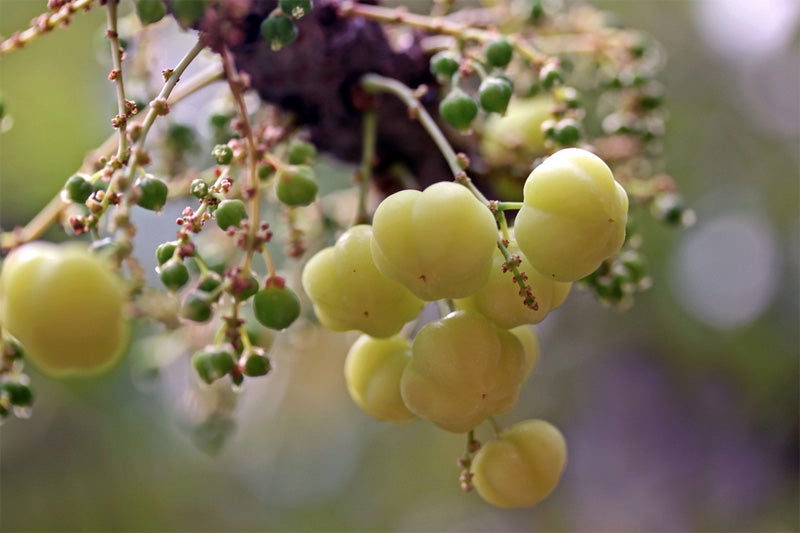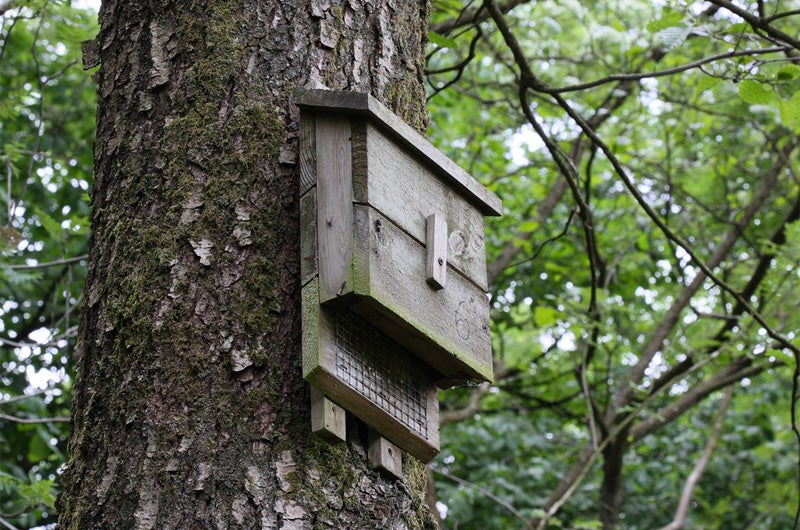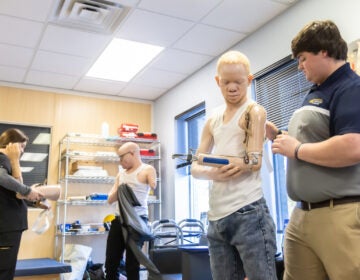The wild world of the gooseberry
ListenLooking for a tasty fruit-producing plant that can take some shade? Mike McGrath introduces the wild world of the gooseberry! Plus: A young inventor discusses his ingenious raised bed garden on wheels; and answers to all your growing questions.
Questions of the Week:
“Is it possible to grow gooseberries in my climate? Our yard is part full sun, part shade. How much room do these things need to grow? I’m picturing a little fruity paradise.”
— Claire in Lambertville, New Jersey
“I was so excited about all the fruits on our Gooseberry bushes last year. But they all had worms in them! Would you please tell me what to use to get rid of them?”
— Gisela in Edgar Springs, Missouri
“I have had my gooseberry bush for at least 18 years. It flowers, gets pollinated by bees, starts to grow fruit and then it all aborts in one fell swoop.”
— Bozena in Bristol, New Hampshire
Learn tips for growing gooseberry »
Highlights from show for July 19, 2014:
Building beds with pavers
Micheal, hailing from the Garden State, has some questions about his garden beds. Specifically, he would like to know if he can use landscaping blocks for raised garden beds. Mike thinks pavers are the new waves of raised bed framing. Cinderblocks, unfortunately are terribly ugly, admits Mike. Pavers are flat and rectangular; all you do is stack them up like legos, says Mike. Zoysia grass, is strong type of grass that will edge along the outside of your blocks and also, zoysia grass doesn’t climb walls. Adhesive isn’t necessary for the pavers as they will just easily stick together, and Micheal will have an aesthetically pleasing raised garden bed by using pavers.
Transforming a patchy lawn
Lauren from Downington, Pennsylvania, has issues with growing grass evenly in her yard. Her house was just built last year, and the contractors put in some seed which produced a thin and patchy lawn. Mike tells Lauren that the contractors may have put down cool-season grasses (blue grass, fescue etc) instead of warm season. The cool season grasses, coming from Scotland, England and Ireland are getting burned up by the harsh Pennsylvania heat. Mike advises that in early August, Lauren should tear up all the old grass she has, level the soil and have yard waste compost delivered. August 15th is the magic date; sow this seed in the new seedbed. A gentle mist of watering twice a day for the first five days and then the grass will think it’s back in the fields of Ireland when it gets cooler at the end of August. Water deeply once a week and cut with a sharp blade 3 inches high. Leave the clippings on the lawn and Lauren will soon be the envy of every neighbor on the block!
-

Photo by Flickr user Joe Sands
The benefits of bats
Patrick from Broomall, Pennsylvania, wants to know if there a benefit from an ecological perspective to keep bats around. Mike informs Patrick that bats are in fact, very essential to the plant world; they consume up to 90% of insects flying around. Millions and billions of bats fly around every summer and are much needed for the proper cycle of good gardening to occur. Bats are social creatures that like to live in the hundreds, says Mike. The best bat houses are imitation belfries, Mike tells Patrick, as this is where bats are the most comfortable. Patrick lets Mike know that he stumbled across some bat houses that can hold up to 185 bats each, which are perfect new homes for these critters. Martin houses, says Mike are also a wonderful device to have, as they attract swallows and dragonflies which are both mosquito-eating creatures.
Correcting winter damage to a young fruit tree
Danielle from Henry, Illinios, has a beautiful, young apple tree that became damaged from the bad storms that the Midwest experienced this past winter. Her poor tree is bent over at a 45 degree angle! Danielle says she is getting only a couple apples from it, and she is indeed pruning it. Mike lets Danielle know she should uproot the entire tree and move it to a spot that drains well that is on high ground on her property. Dig a deep enough hole to accommodate most of the roots and make sure you can dump a bucket of water in there and it should soak up pretty quickly. If not, that that area of ground is much too saturated and it she would need to go somewhere else. This will allow for the tree to grow straight up and produce yummy apples for seasons to come!
Returning a lawn to its natural state
Joanne is a new homeowner in West Berlin, New Jersey and wants to return a pesticide-ridden yard back to its natural state out of concern for her dogs. Mike explains that before buying a house, it’s best to have the home thoroughly inspected by a professional. Joanne can look up what type of herbicides that were used on the lawn and see if it would affect dogs. Limit the time they play outside for the first 6 months to a year and when they are done in the yard, wash their feet, says Mike. As to returning to the lawn to its normal state, Mike agrees with Joanne’s approach of planting clovers and other natural plants to help blooming.
WHYY is your source for fact-based, in-depth journalism and information. As a nonprofit organization, we rely on financial support from readers like you. Please give today.






